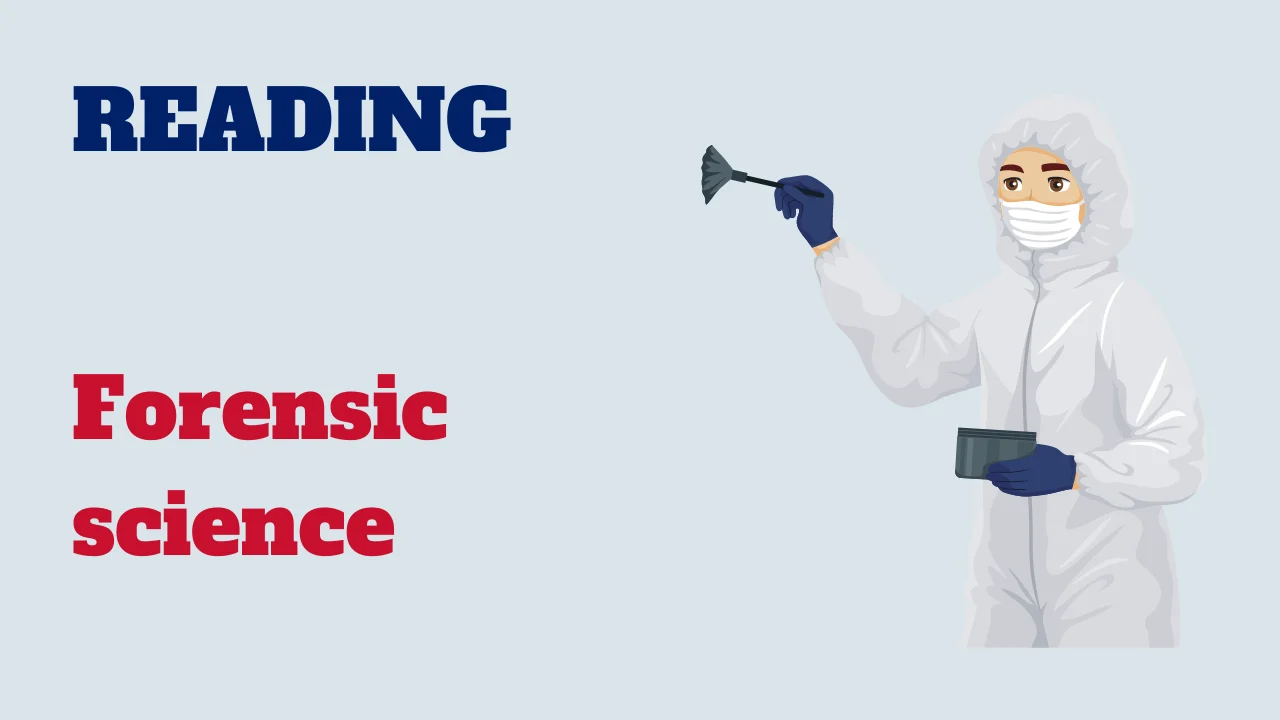In this reading activity, we will see how forensic science plays a crucial role in criminal investigations, utilizing scientific principles to assist law enforcement in identifying suspects and understanding the circumstances of crimes.

This reading explores the various aspects of forensic science and its significance in the pursuit of justice.
Text: Forensic science and its role in criminal investigations
Forensic science plays a pivotal role in criminal investigations by applying scientific principles and techniques to solve crimes and deliver justice. It encompasses a broad range of disciplines, including biology, chemistry, physics, and digital analysis, each contributing to the gathering, examination, and interpretation of evidence.
The origins of forensic science can be traced back to ancient civilizations, but it formally emerged as a distinct field in the 19th century with advancements in fingerprint analysis, toxicology, and forensic pathology. The introduction of these scientific methods revolutionized criminal investigations, providing objective and reliable means to link suspects to crimes.
One of the primary roles of forensic science is to analyze physical evidence from crime scenes. This includes fingerprints, bloodstains, hair, fibers, and other trace materials. Techniques such as DNA profiling, developed in the 1980s, have become crucial in identifying suspects with high precision. DNA evidence can exonerate the innocent and confirm the guilt of perpetrators, making it one of the most powerful tools in forensic science.
Forensic chemistry and toxicology are essential for detecting substances such as drugs, poisons, and explosives. Analyzing these materials helps determine causes of death, establish timelines, and identify potential criminal activities. Forensic ballistics involves examining firearms, bullets, and gunshot residues to trace weapons used in crimes and link them to suspects.
Digital forensics has become increasingly important in the modern era, focusing on the recovery and analysis of data from electronic devices. This field aids in uncovering cybercrimes, fraud, and digital evidence related to other types of criminal activity. By examining emails, files, and digital footprints, forensic experts can piece together critical information.
Forensic science also extends to forensic anthropology and odontology, which involve analyzing skeletal remains and dental records, respectively, to identify victims and determine causes of death. These specialties are particularly valuable in cases involving mass disasters or unidentified bodies.
In criminal investigations, forensic science provides the evidence needed to build cases and support legal proceedings. It enhances the accuracy and efficiency of investigations, ensuring that conclusions are based on scientific facts rather than assumptions or circumstantial evidence. As forensic techniques continue to advance, their role in criminal justice becomes ever more crucial, contributing to the integrity and effectiveness of the legal system.
Comprehension questions
Forensic science emerges as an essential tool in the pursuit of justice, integrating scientific principles with investigative procedures to resolve crimes and ensure accountability. From crime scene investigation to expert witness testimony, the contributions of forensic experts enhance the effectiveness of law enforcement and the judicial system, solidifying forensic science’s indispensable role in modern society.



